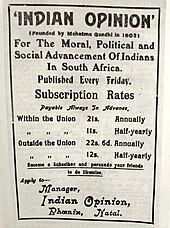
Mahatma Gandhi’s life and work had significant interactions with Europeans, Indians, and Africans across different phases of his journey.
In Africa (1893–1914):
Gandhi lived in South Africa for 21 years, where he first developed his philosophy of Satyagraha (nonviolent resistance). He fought against the racial discrimination faced by Indians under British and Dutch rule. His activism brought him into contact with Africans who were also struggling against colonial oppression. However, some of his early writings reflected the biases of his time, which he later evolved from. Over time, his movement in South Africa influenced anti-colonial struggles across Africa.
In India (1915–1948):
After returning to India, Gandhi became the leader of the Indian independence movement against British rule. He mobilized Indians of all backgrounds—peasants, workers, industrialists, and intellectuals—against colonial policies through nonviolent protests like the Non-Cooperation Movement, Civil Disobedience Movement, and Quit India Movement.
Relations with Europeans:
Gandhi interacted with many Europeans, including British rulers, Christian missionaries, and sympathizers of Indian independence. Some British officials opposed him, but others, such as Lord Irwin (later Lord Halifax), negotiated with him. European thinkers like Tolstoy and Ruskin influenced his ideology, while some British individuals, such as C.F. Andrews and Madeleine Slade (Mirabehn), became his followers.
Global Influence:
- Inspired African leaders: His nonviolent methods influenced figures like Nelson Mandela and Kwame Nkrumah.
- Influenced European pacifists: Leaders like Bertrand Russell and movements for civil rights in the West were inspired by his approach.
- Impact on India and beyond: His ideas shaped India’s independence and inspired freedom struggles worldwide.